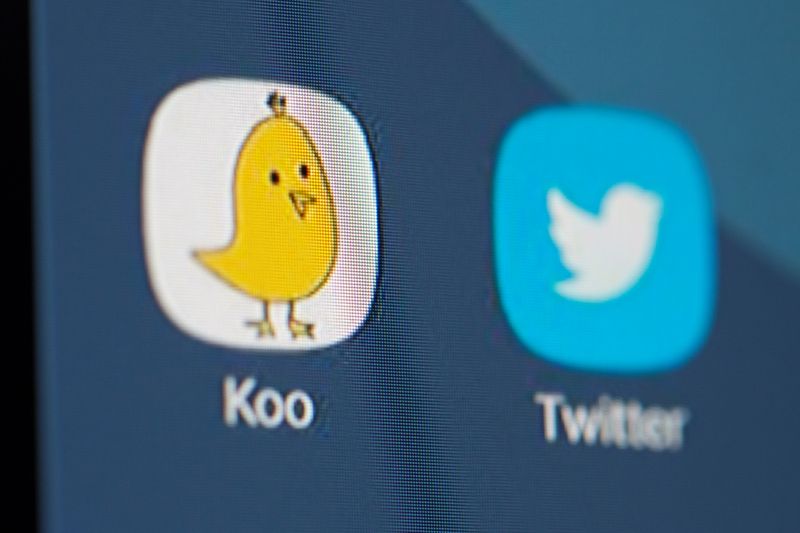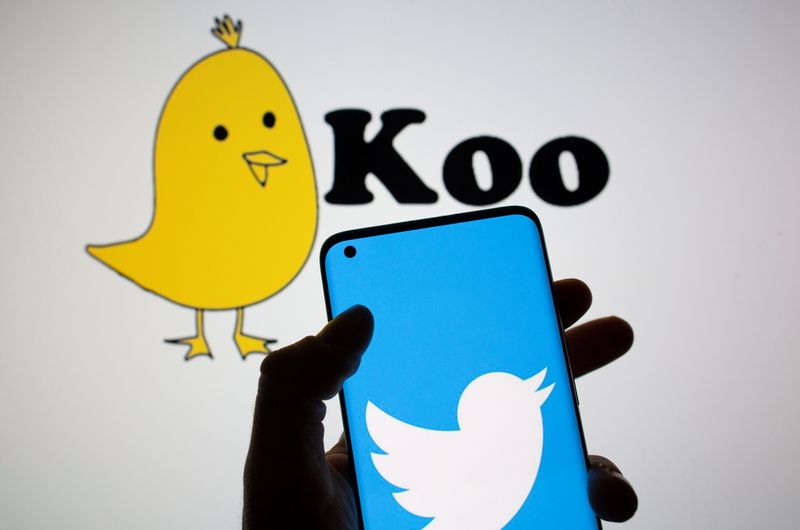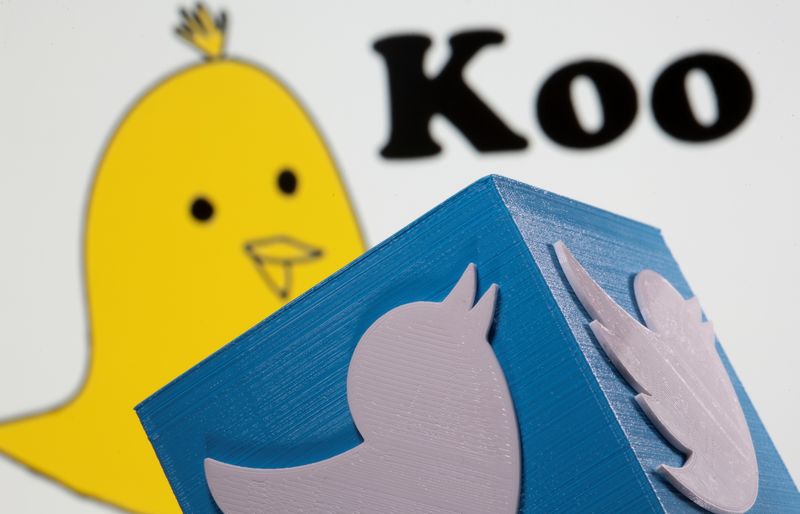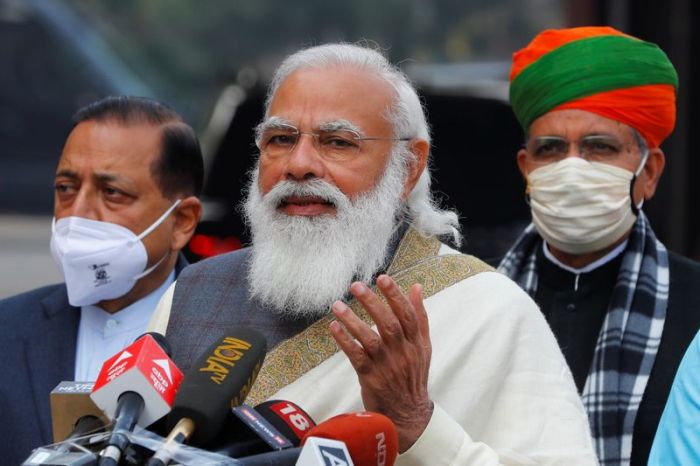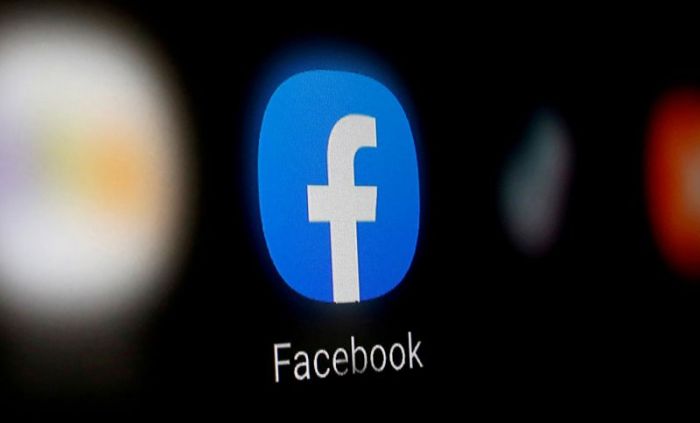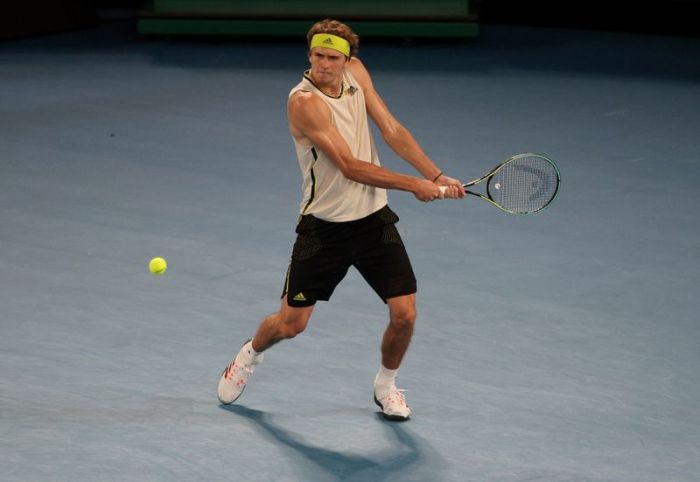NEW DELHI (Reuters) – India rebuked Twitter on Wednesday for not complying with its orders to take down certain content and warned the social media giant that it needs to obey local laws, even as Indian lawmakers urged their followers to switch to home-grown rival Koo.
India has ordered Twitter to remove more than 1,100 accounts and posts that it alleges are spreading misinformation about the widespread protests by Indian farmers against new agricultural laws.
Twitter Inc riled Indian Prime Minister Narendra Modi’s government earlier on Wednesday, after it said in a public blog post that it had not fully complied with the government’s order because it believed some of the take-down orders were not consistent with Indian law.
“In keeping with our principles of defending protected speech and freedom of expression, we have not taken any action on accounts that consist of news media entities, journalists, activists, and politicians,” it said.
India’s IT Ministry, via a post on rival platform Koo, said late on Wednesday that its top official had on a call with some of Twitter’s top executives expressed “strong displeasure” with Twitter’s actions.
“Twitter is free to formulate its own rules and guidelines,” the government said. “But Indian laws which are enacted by the Parliament of India must be followed irrespective of Twitter’s own rules and guidelines.”
The IT secretary expressed his deep disappointment over the manner in which the company had “unwillingly, grudgingly and with great delay” complied with only parts of the government’s orders, the government statement added.
Twitter did not immediately respond to a request seeking comment on the meeting with the IT ministry.
Twitter’s moves to defy India’s orders have put the company and its executives at the centre of a political firestorm. New Delhi has previously threatened legal action which could result in fines or imprisonment for Twitter executives responsible for implementing government directives.
It also comes after Twitter’s top lobbyist in India, Mahima Kaul, resigned while the company scrambles to contain a growing public relations crisis.
Public opinion in one of Twitter’s key markets is split. Some lawyers say Twitter must comply or challenge the order in court while activists blame the government for using legal provisions to curb free speech.
I’M ON KOO!
Earlier on Wednesday, Twitter said following government orders it permanently suspended over 500 accounts for engaging in platform manipulation and spam. For many others, it only restricted access within India and their tweets can still be read abroad.
For Twitter, the stakes are high in India, where it had 17.5 million users as of last month, according to German database firm Statista. It is also ardently used by Modi, his Cabinet ministers and other leaders to communicate with the public.
As the row takes a toll on Twitter, many Indian politicians and users are joining the home-grown Twitter-like social media platform Koo, which was launched last year.
#kooapp was the top Twitter trend in India on Wednesday with nearly 21,000 posts, followed by #BanTwitter.
Twitter declined to comment about some users migrating to Koo.
Several people on Twitter, including Trade Minister Piyush Goyal, have posted tweets this week saying “I am now on Koo”. Goyal, who has 9.6 million Twitter followers, has a pinned tweet asking people to connect with him on the rival Indian platform.
Sambit Patra, a national spokesman for Modi’s ruling party, and its head of IT Amit Malviya also joined Koo on Wednesday.
Koo, which has a yellow bird as its logo, said downloads have surged 10-fold in the past two days to over 3 million.
“The last 48 hours has seen the largest number of sign-ups,” Koo’s co-founder Mayank Bidawatka told Reuters. “I’ve slept for two hours in last few days.”
(Reporting by Sankalp Phartiyal and Aditya Kalra; Editing by Euan Rocha, Edwina Gibbs, David Clarke and Jonathan Oatis)

